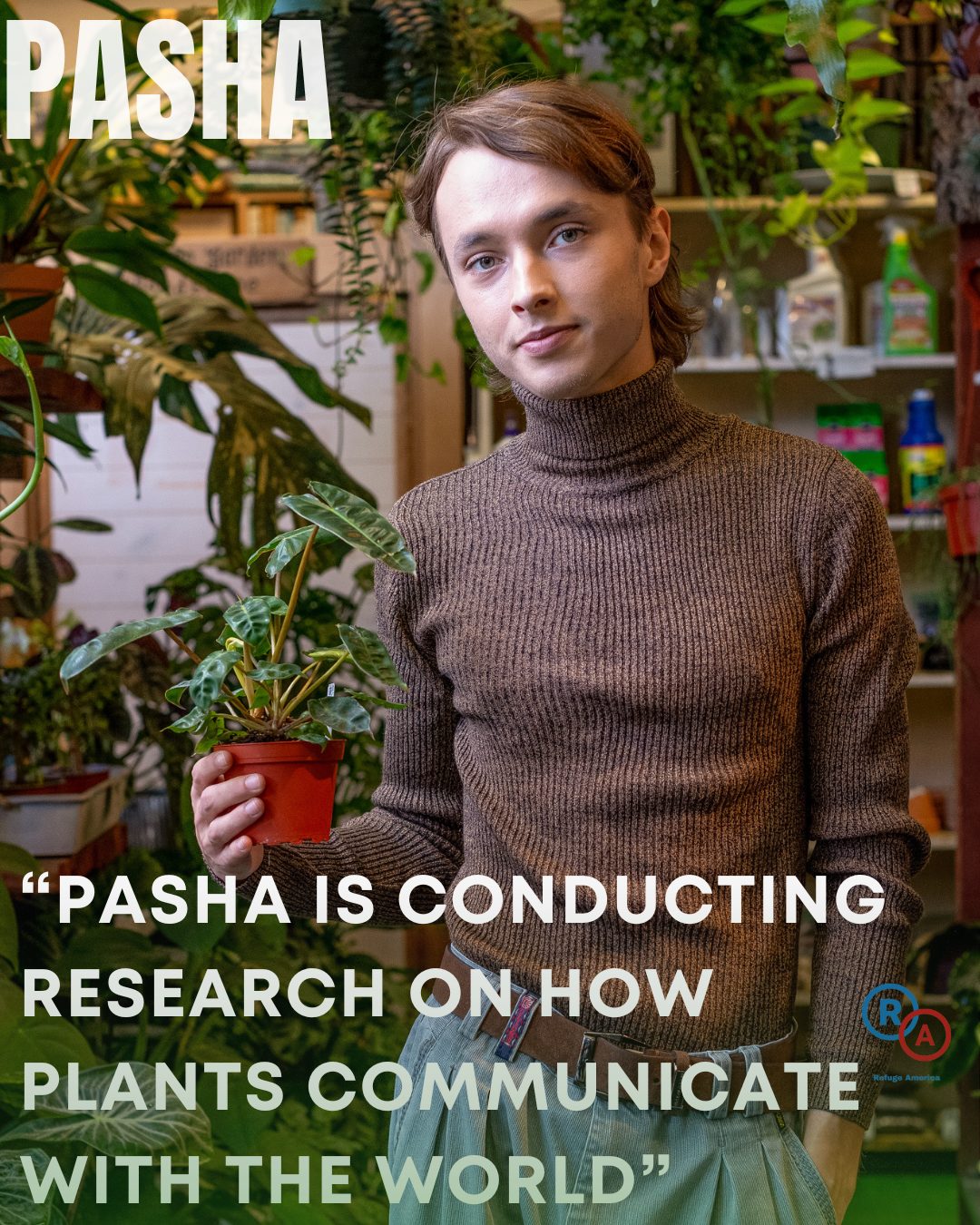Pasha’s Story: Navigating Strife, Love, and Resilience from Kyrgyzstan to San Francisco
Growing up in Kyrgyzstan, Pasha always felt like an alien due to “how I look and feel”. During World War II, Pasha’s family had been forced to migrate from Poland to escape first the Nazis and then the Soviets.
However, Kyrgyzstan and its people were always a home for me, with plants to love and some of the world’s warmest people. with plants to love and some of the world’s warmest people. Shortly after that, though, Pasha realized that in terms of sexual and gender identity, Pasha did not fit into the roles that either Pasha’s family, or wider Kyrgyz society had laid out.
Pasha's journey to self-acceptance was fraught with challenges, not least of which was how to embrace an emerging self while concealing that identity to feel loved and safe in the family.
For example, Pasha was awoken one morning to screaming and a knife raised overhead. Looking at Pasha’s phone, mother, an alcoholic, had discovered a series of texts from Pasha’s partner. “She told me that if she had had a gun she would have shot me.”
The discovery of Pasha’s interest in men led to a series of uncomfortable confrontations. Pasha made attempts to leave home to escape the abuse but returned out of concern for family members. This period in Pasha's life was marked by intense emotional strain and a struggle with identity, all while coping with the isolation brought on by the pandemic.
Then, while still in Kyrgyzstan, Pasha and partner were filmed making love by the secret service and blackmailed to spy on their fellow students at the American University of Central Asia. The video was leaked to all the social media. Soon it went viral: “basically like we became Kim Kardashians of Kyrgyzstan, but without money.”
Even Pasha’s family members saw it. “A friend showed the video to one of my family members. Due to societal pressure, they had to deny it. They defended me, claiming it's like some sort of deep fake and that it's not me. Despite external pressure, my family chose to overlook it.”
Pasha and partner fled to Kazakhstan. However, their safety was short-lived. During their stay, Kazakhstan erupted into violent protests over government policies, leading to a brutal crackdown by authorities. Frighteningly for Pasha and partner, the authorities were blaming Kyrgyz radicals for inciting unrest.
Even after enduring political and family homophobia in Kyrgyzstan, weathering a pandemic, and surviving violent protests in the streets of various countries, coming to America on a full academic scholarship was not the end of Pasha’s troubles.
Life in the U.S. presented its own set of challenges. Pasha's academic journey to the Northeast was marred by isolation and a lack of understanding from those around him. Pasha’s partner was stuck in Almaty, Kazakhstan, adding to the loneliness and mental health struggles that were exacerbated by prejudice and the pressure of adapting to a new environment.
Finally, though, Pasha and partner were reunited and, after a few false steps, found a refuge in San Francisco. They are still finding their way in America, but have begun to put down roots — and to collect plants they can nurture to help bring them some peace in their new home.
Follow the journey of LGBTQ Refugees profiled by Refuge America and support our work in making the United States a place of welcome for LGBTQ Refugees. link to donate link. Register for our June 2024 Pride Exhibition in D.C. link and New York Pride Exhibition link.


